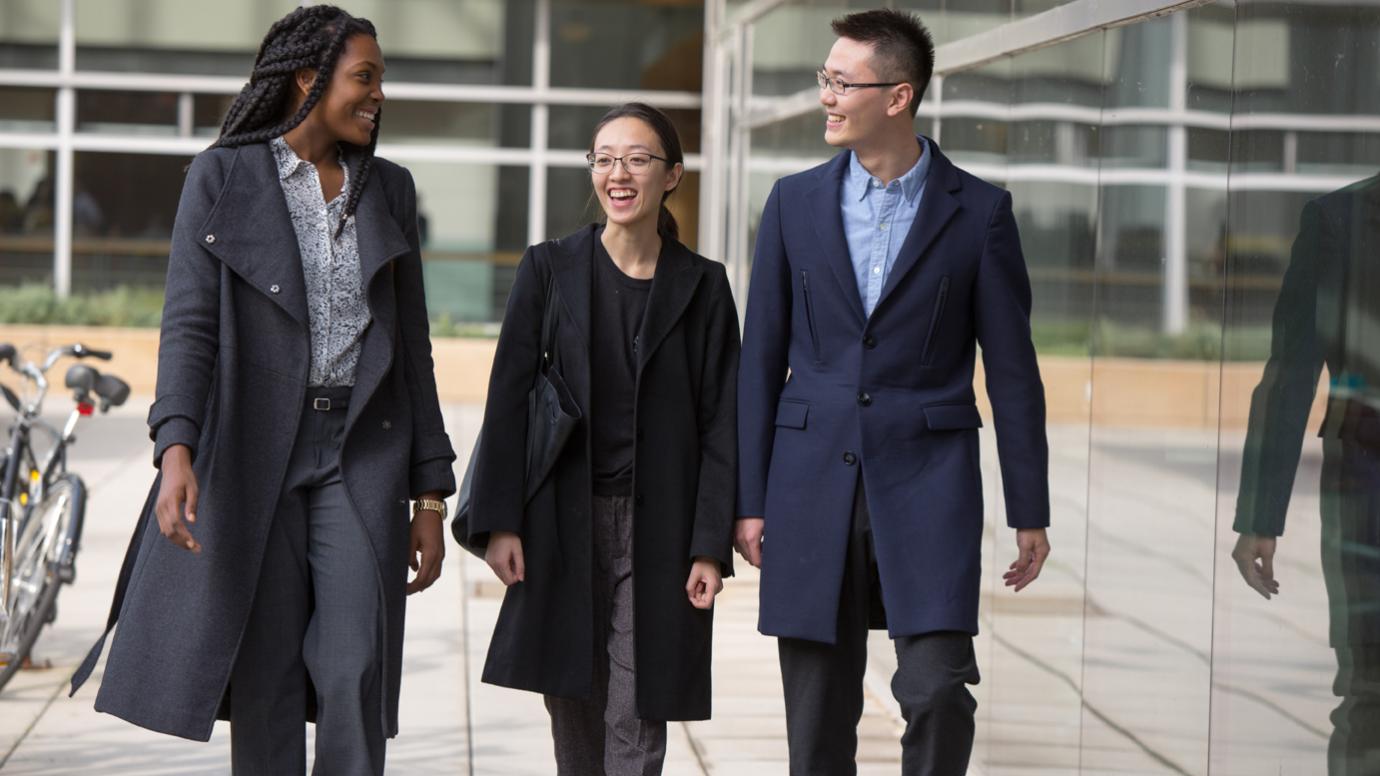Building upon the University’s commitment to expand opportunities for graduate students from diverse backgrounds, UChicagoGRAD is developing more programming and support to meet the needs of graduate students of color.
Carlos Cardenas-Iniguez, a fifth-year psychology and integrative neuroscience graduate student, is supportive of the new steps, which have helped him develop additional networking and professional support for social science graduate students. Several years ago, he had looked unsuccessfully for University offices that could help with such efforts after an externally funded grant expired. “There were allies in various locations,” he said, “but the conversation wasn’t happening across the University.”
When UChicagoGRAD offered a graduate innovation grant, Cardenas-Iniguez and a colleague proposed a retooled version of their professional support program, and they received funds for a pilot year. The Division of the Social Sciences now funds the program, in its second year, and Cardenas-Iniguez and UChicagoGRAD are considering “how to scale up and institutionalize the elements that are working.”
UChicagoGRAD assembled a team of graduate students to serve as an advisory council to help research best practices for supporting graduate students of color, including professional development, social support and more. Currently, Cardenas-Iniguez and graduate students Sonia Gomez, Jasmine Benjamin and Camille Reynolds serve as advisory board members and higher education administration interns. UChicagoGRAD has worked with the team to launch new programming and begin research into strengthening support for a diverse graduate student body.
Some of their initiatives include:
- Partnering with the Office of Multicultural Student Affairs and Student Counseling Services to launch a series of mental health and wellness workshops focused on the unique concerns of graduate students from underrepresented groups.
- Establishing the GRAD Diversity Advisory Board, which will hold its inaugural research symposium this spring, organized by Benjamin and Gomez, to target interests of graduate students from underrepresented groups and other constituents to enhance networking among undergraduates, graduate students, postdocs and faculty. The symposium will give students the opportunity to share their research among peers who value their perspectives as well as the content. The School of Social Service Administration, the Center for the Study of Race, Politics and Culture, and the Office of Multicultural Student Affairs are co-sponsoring the event.
- Incorporating a new series of professional development programs based on the expressed needs of this student population and benefitting all graduate students and postdocs by preparing them to work with diverse students when they enter the professoriate. Topics have included a diversity statement workshop, resources for support on the academic job market and a recent faculty panel on balancing scholarship and activism moderated by doctoral student Jenn Jackson.
“A lot of students were feeling like they were out there alone,” said Celina Chatman Nelson, associate director of GRAD Development and Diversity in UChicagoGRAD. “My role is a prime example of the University’s commitment to addressing this issue by creating positions that pay attention to the specific needs of underrepresented graduate students and postdocs on this campus.”
Building a network
To further help reduce that sense of isolation, UChicagoGRAD took a simple first step and created an email list for all graduate students who self-identify as members of historically underrepresented groups. The members of the graduate diversity advisory group serve as moderators for the list, which includes more than 500 students.
Chatman Nelson is convening a working group for administrators across divisions who work on graduate diversity. “We want to keep our finger on the pulse of what’s happening across the University to coordinate efforts and maximize benefits to students,” Chatman Nelson said.
“Celina has been crucial in starting the conversation to get everyone on board,” said Cardenas-Iniguez. “Coordinating efforts to support graduate students of color can bust myths and get beyond the basics,” he noted.
This year, UChicagoGRAD will offer a program on diversity in the job market. Another topic for programming, said Chatman Nelson, is building a mentoring network. “Often, students are unable to connect with their faculty advisor or to find mentors that extend beyond this campus and their UChicago committee.”
Efforts to support graduate students on campus are complemented by new research into recruiting a diverse graduate student body. Already, the University is connected to national pipeline programs like the Leadership Alliance, the Mellon-Mays Undergraduate Fellowship and GEM. As part of her higher education administration internship, Reynolds is investigating which of these programs are already bringing in students and how to strengthen the existing relationships with these programs to increase the number of underrepresented graduate students on campus.
“Historically, even though we have these pipeline programs, we haven’t always done a good job of getting students who attend them to want to come here,” Reynolds said. Her goal is to “get a better feel for why students who are already here chose the University and figure out where they came from.”
In October 2016, UChicagoGRAD worked with the academic divisions and schools to coordinate Discover UChicago, which hosted 35 prospective graduate students from historically underrepresented groups on campus for a weekend. The event provided students with workshops on the graduate application and admissions process, as well as individual meetings with faculty, administrators and current students in their fields of interest.
Despite the challenges of recruiting and supporting a diverse graduate student body at the University, Reynolds notes “rapid progress" in the last two years. “They’re thinking about how to better recruit diverse students,” she said, administrators recognize “it’s not just about recruiting students, it’s about making sure they feel part of the University community.”







